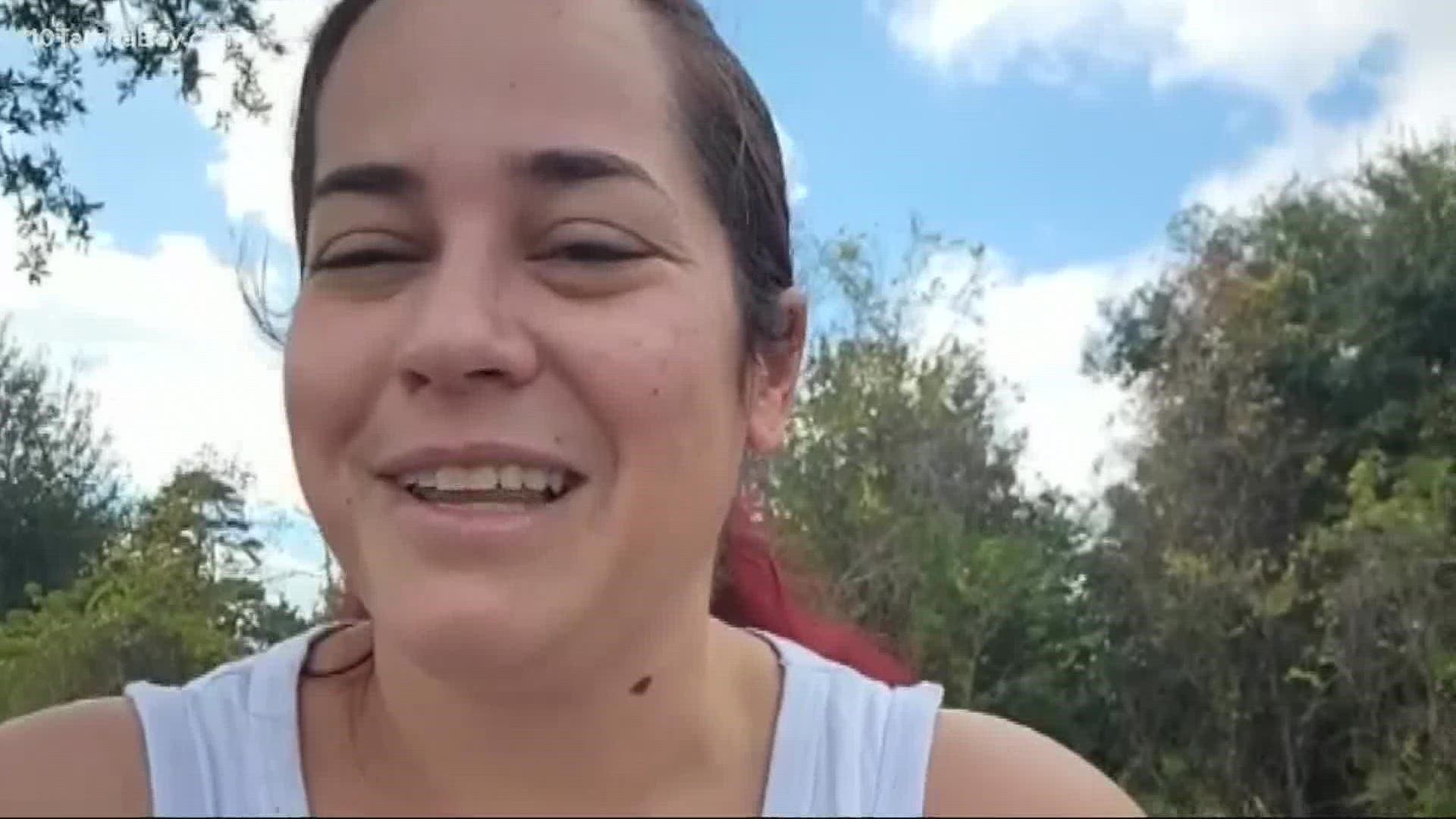TAMPA, Fla. — The infectious disease experts and medical forecasters say it's going to get worse before it gets better.
According to the Florida Department of Health's latest report, 125,201 new COVID-19 cases were reported last week. That's up more than 95,000 from the previous week's reported new cases of 29,519.
"We’ve seen some record numbers. Astonishing increases in just the past two weeks alone. We’ve seen, like in Hillsborough County, 500% increase, again just in the past two weeks alone in terms of new infections," said Dr. Jason Salemi, an associate professor of epidemiology at the University of South Florida.
Salemi created a COVID-19 dashboard early on in the pandemic. His charts compile data from the Florida Department of Health, Centers for Disease Control and Prevention and the Department of Health and Human Services and puts it in one place to give people a comprehensive picture with interactive visualizations.
In looking at the current data, Salemi predicts new infections will continue to increase coming off the holiday gatherings and travel.
"Cases and positivity are just increasing at a very rapid rate. When we look at hospitalizations, again, they are going up more than a 100% increase in average daily new admissions," he said.
Salemi is hopeful the omicron surge won't bring the tidal wave of hospitalizations and deaths that we saw in late summer with the delta variant.
"We don’t have a lot of people who have never been infected and never been vaccinated. A lot of people have some immunity built up. That will work in our advantage. That’s why a lot of people think omicron is less severe because a lot of people getting infected have some sort of built-up immunity," Salemi explained
Researchers at the University of Florida created a model projecting how various omicron-driven surge scenarios could unfold in Florida over the next few months.
The researchers considered the following variables in their predictions:
- Transmission
- Immune escape (the ability for omicron to evade immunity due to natural infection or vaccination)
- Disease severity
BOTTOM LINE: All projections in the study point to the omicron wave growing slowly through December, rapidly in January, and peaking in February.
You probably know someone right now with COVID.
Angela Goldfarb just came out of a 15-day quarantine with her two young daughters.
"I felt like a failure as a parent because I tried to do everything I could and it still got to them and there’s no way to protect them because they’re so little," said Goldfarb, who said she tested positive more than two weeks ago after working at a holiday party.
She said she was fully vaccinated and boosted (three Pfizer shots) and was never in a crowded indoor environment since she works at an outdoor venue.
"I followed all the rules and still got it," said Goldfarb who is grateful that she and her two kids are now back to normal.
Salemi says we shouldn't get too caught up in forecasting the future and instead focus on what's happening today.
"The message right now is we need to take omicron very seriously," he said.
Salemi listed the best ways to protect yourself:
Get vaccinated or boosted if you're eligible, wear masks when you're in crowded indoor environments, take advantage of the outdoors when getting together with others, consider using at-home testing kits before and after gatherings.
It takes all of that to stop the next variant from becoming a household name.

